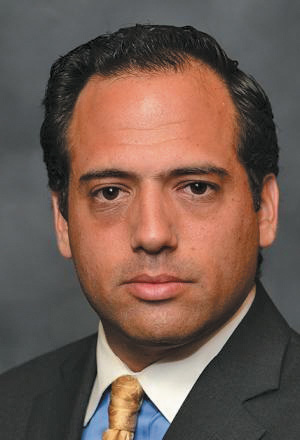
While watching the presidential debates, I kept asking myself one simple question—when are either of the candidates, or the moderators for that matter, going to mention Israel. Having been a political professional and government official for over 15 years prior to my work at the Simon Wiesenthal Center I naturally look upon debates, or any political activity for that matter, from a somewhat more strategic perspective. Having prepared dozens of candidates for debates, I know very well that the time for a candidate to express their policy priorities, the time to pander to needed constituency bases in battleground states, is obviously during a nationally televised broadcast debate. I simply cannot recall a presidential election year where the word Israel did not surface in any of the debates—and that is something we in the Jewish community should be concerned about.
This is not to say that each of the candidates do not have stated policy positions on Israel. We know of Hillary Clinton’s officially stated positions of protecting Israel’s qualitative military edge to ensure the IDF is equipped to deter and defeat aggression from the full spectrum of threats, to stand up against the boycott, divestment and sanctions movement, and to cut off efforts to unilaterally recognize Palestinian statehood outside of the context of negotiations with Israel. Similarly, we know that Donald Trump has both stated that he would recognize Jerusalem as Israel’s capital while consistently slamming the Iran nuclear deal in line with Israel’s governmental leadership.
So why not use these talking points in front of a national broadcast audience?
As the candidates discussed strategic global alliances, Israel, our nation’s most secure ally in a region dominated by ISIS, Hamas, Iran and Assad, was simply not one of the nations or entities used as an example. As the candidates delved into our nation’s global fight against terror, somehow Israel, the victim of more terror attacks than all of the discussed nations combined, was simply absent from the conversation. As the candidates talked about acceptance, tolerance and diversity, it was the growing effects of Islamophobia that dominated, yet not a word on the attempts to delegitimize Israel through the boycott, divestment and sanctions movement and the effects on campus of our youth being abused by extreme anti-Israel and anti-Semitic groups.
These omissions could not have been accidental. Candidates prepare extensively in mock debates, planning sophisticated mechanisms to produce opportunities to utilize examples they believe necessary to gain the attention, even for a fleeting second, of those targeted interest groups. Candidates on the national stage are well versed in making certain that they answer the questions that they want to answer, not necessarily the ones asked, in order to achieve their political objective. When the Iran accord was mentioned in the debates, either candidate could have easily pivoted to mention its effect on Israel—but they didn’t.
One might point to the fact that in each candidate’s rallies or stump speeches, Israel and the causes of the Jewish community have certainly been a part of their campaign, yet under such circumstances the audience is limited. The nationally televised debates are by definition the big show. The debate content leans toward the issues prioritized by the candidates and their teams of advisers; this year, for the first time in my memory, Israel simply didn’t make the cut.
The truth is, we won’t know for certain what transpired in this election cycle behind the scenes until after the election, when campaign insiders become televised talking heads looking to sell their story and expand their stardom. What we do know, however, is critical. We need to understand that something transformative happened on those debate stages that I do not ever recall witnessing previously—the absence of Israel from the national conversation. There are many potential reasons for this, such as the more impending threats of ISIS in Aleppo and other crisis points; however, there have always been crisis points around the globe and Israel had still remained a topic for discussion.
For whatever reason, having Israel omitted should serve as a wakeup call for all of us to make certain that elected officials know how important Israel is to our nation’s security and to our nation’s preservation of our way of life.
By Michael D. Cohen, Eastern Director, Simon Wiesenthal Center










